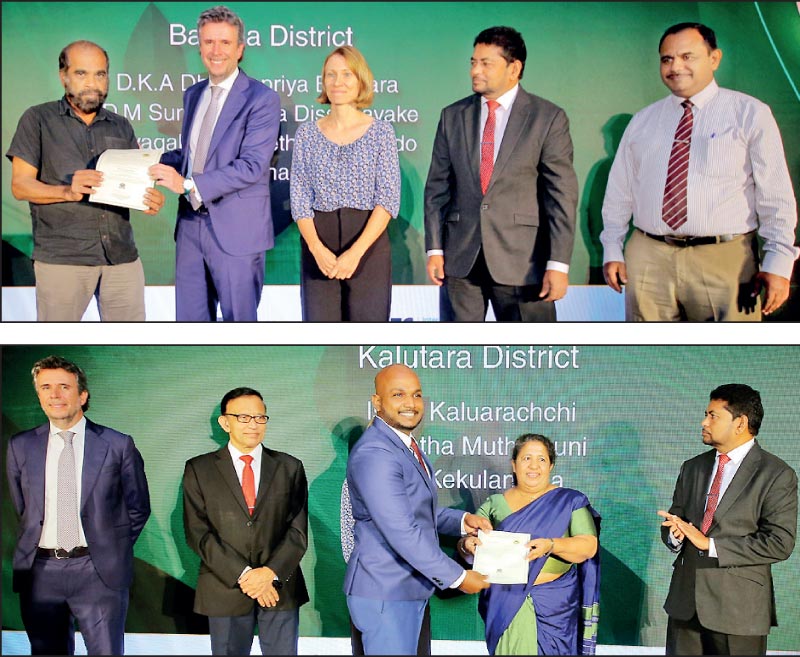Saturday Feb 21, 2026
Saturday Feb 21, 2026
Friday, 19 January 2024 00:00 - - {{hitsCtrl.values.hits}}

In an effort to better position and promote high quality exports of Ceylon Cinnamon, the International Finance Corporation (IFC) together with the Ministry of Plantation Industries and Sri Lanka Export Development Board (EDB) recently recognised the first batch of Geographical Indication (GI) certified Ceylon Cinnamon growers in the country.
The initiative to enhance competitiveness of Ceylon Cinnamon, which is indigenous to Sri Lanka, was supported by the European Union (EU), alongside industry stakeholders including Sri Lanka Standards Institution, the Industrial Technology Institute and the Department of Cinnamon Development.
Ceylon Cinnamon is Sri Lanka’s second largest agricultural export crop, after tea, accounting for 90% of global market share. It supports the livelihood of over 70,000 smallholder growers and providing jobs to over 350,000 Sri Lankans, the majority of which are women.
In 2022, Ceylon Cinnamon was granted the GI status when Sri Lanka first received the GI certification from the EU, with support from United Nations Industrial Development Organisation (UNIDO). The certification acts as a source of competitive advantage, helping increase market differentiation and product turnover for the spice, while allowing for a premium price from the consumer.
“An enhanced competitive position of Ceylon Cinnamon in the EU market will have a positive impact in terms of an increase in exports for Sri Lanka, higher income and employment generation across the cinnamon value chain,” said SLEDB Chairman Dr. Kingsely Bernard.
The project supported EDB, the Department of Export Agriculture and the Department of Cinnamon Development to implement the GI process, including training of farmers. 45 farmers/processors met the GI requirements and obtained their certification, making them Sri Lanka’s first-ever GI certified Ceylon Cinnamon growers.
IFC Sri Lanka and Maldives Country Manager Alejandro Alvarez de la Campa said: “Sri Lanka has been historically renowned for its richness in spices, including Ceylon Cinnamon. Now with a renewed focus, we want to better position this unique spice for the authentic, quality it brings by reaching across high-value global markets. Repositioning exports to move away from traditional low value products to high-quality, value-added exports is of strategic importance to the country in achieving a resilient, inclusive recovery of the economy.”
Lack of knowledge on quality requirements in high value markets, specifically among smallholders, presents a challenge in Sri Lanka. This certification will help build confidence among higher value markets, bringing in new opportunities for the agriculture sector.
“Agriculture is important for Sri Lanka’s economy. EU’s support for this initiative is built on our overarching efforts in boosting export potential of agricultural products, such as Ceylon Cinnamon, to the EU. Strengthening agricultural value chains can improve productivity, create more jobs and help Sri Lanka steer towards a more sustainable, resilient and productive agriculture sector,” said European Union Delegation to Sri Lanka and Maldives Head of Cooperation Dr. Johann Hesse.
As part of the project, Euromonitor International, the world’s leading independent provider of strategic market research, carried out an assessment to identify high-value markets and product applications that present the greatest opportunity for Ceylon Cinnamon exports. Australia, Brazil, Germany, United Kingdom and United States of America were identified as potential export markets under this.
